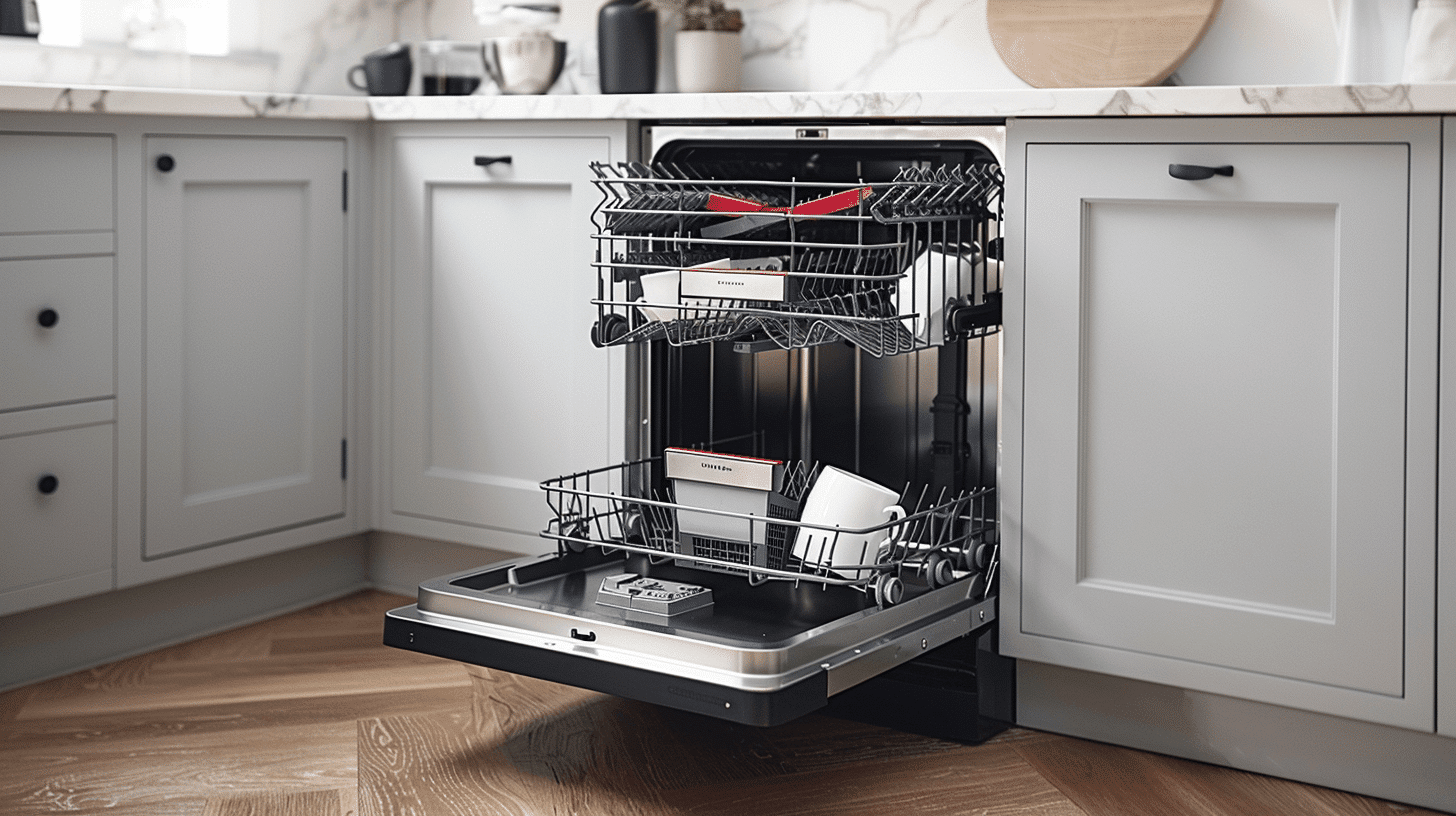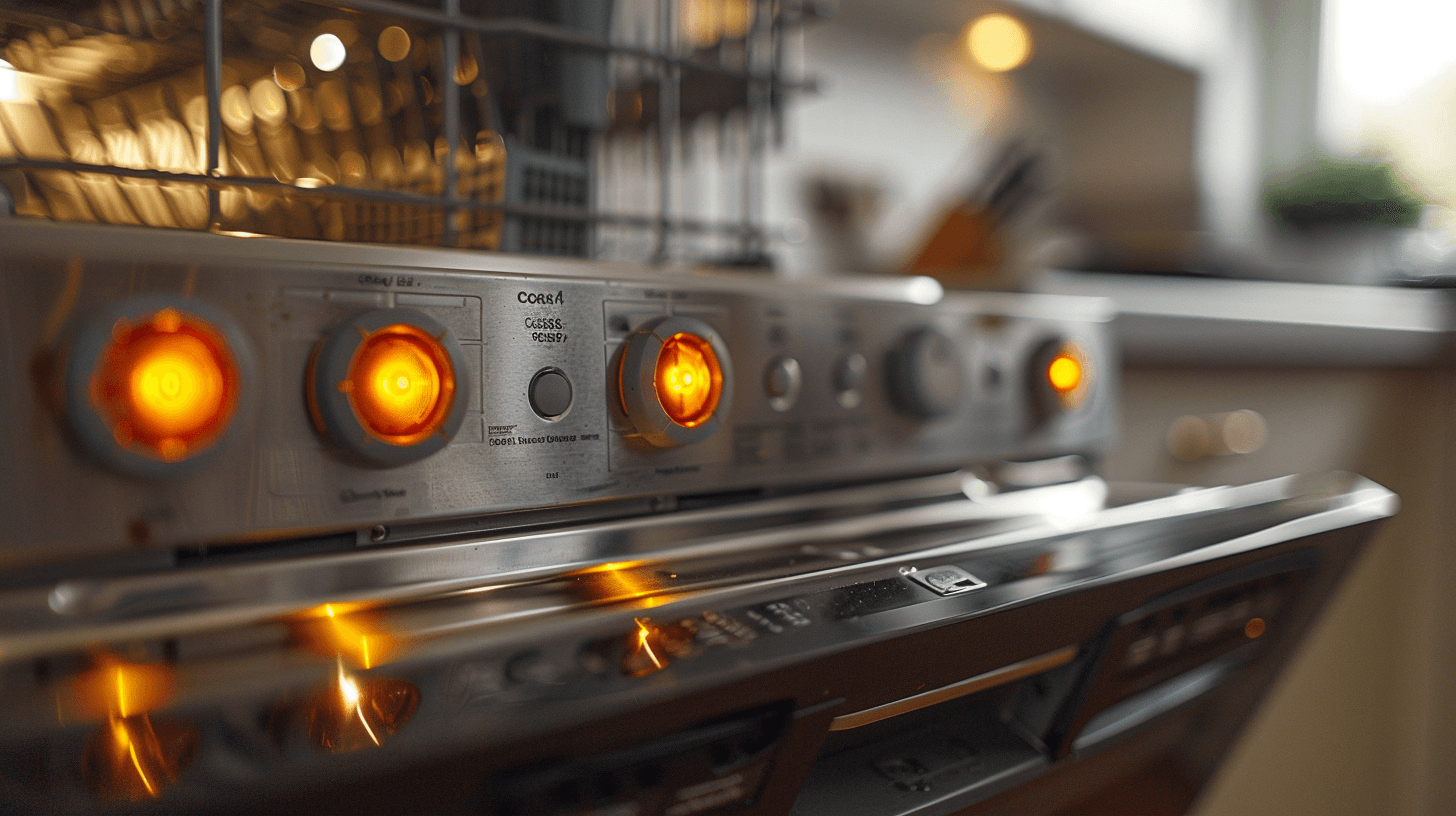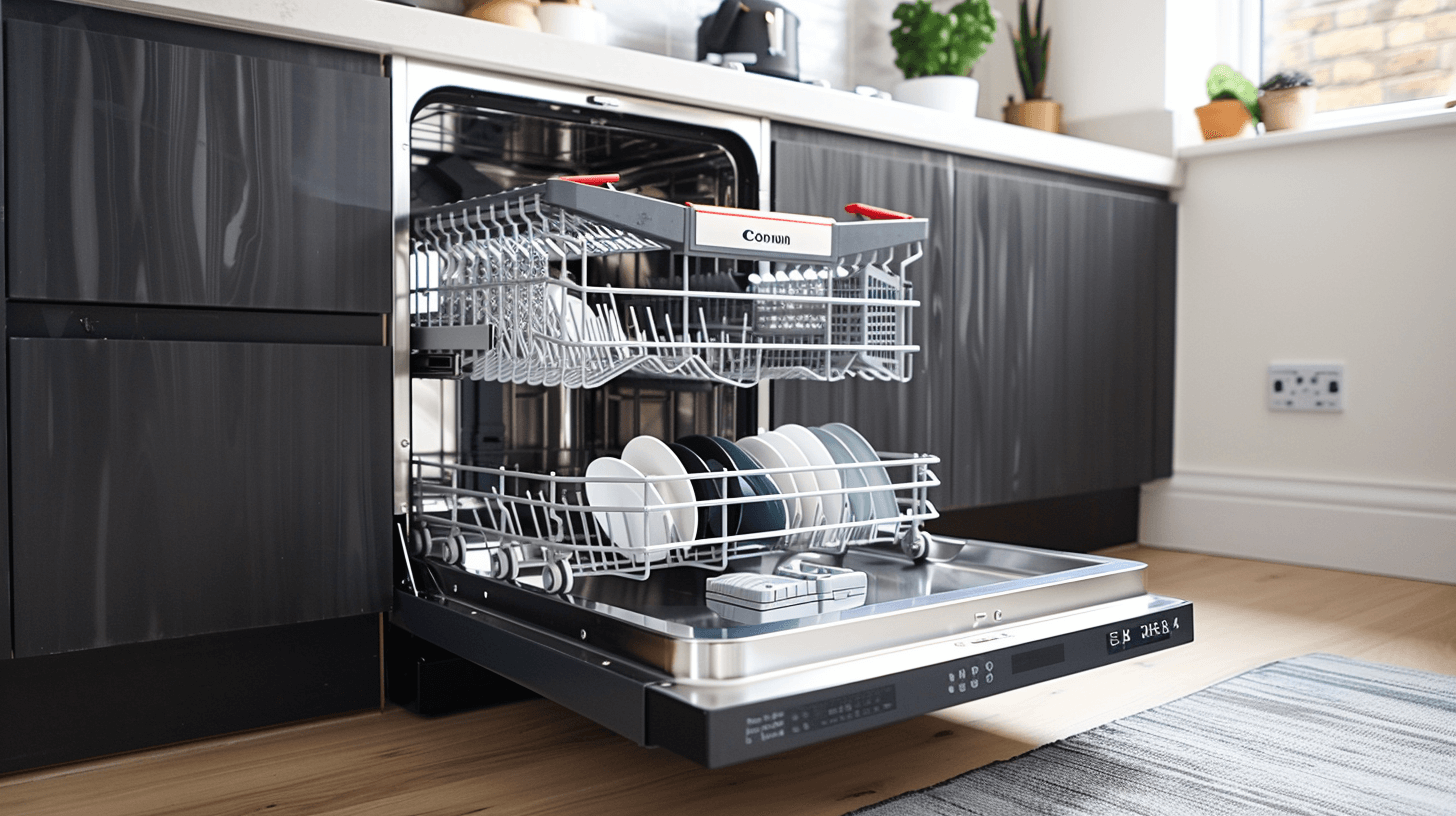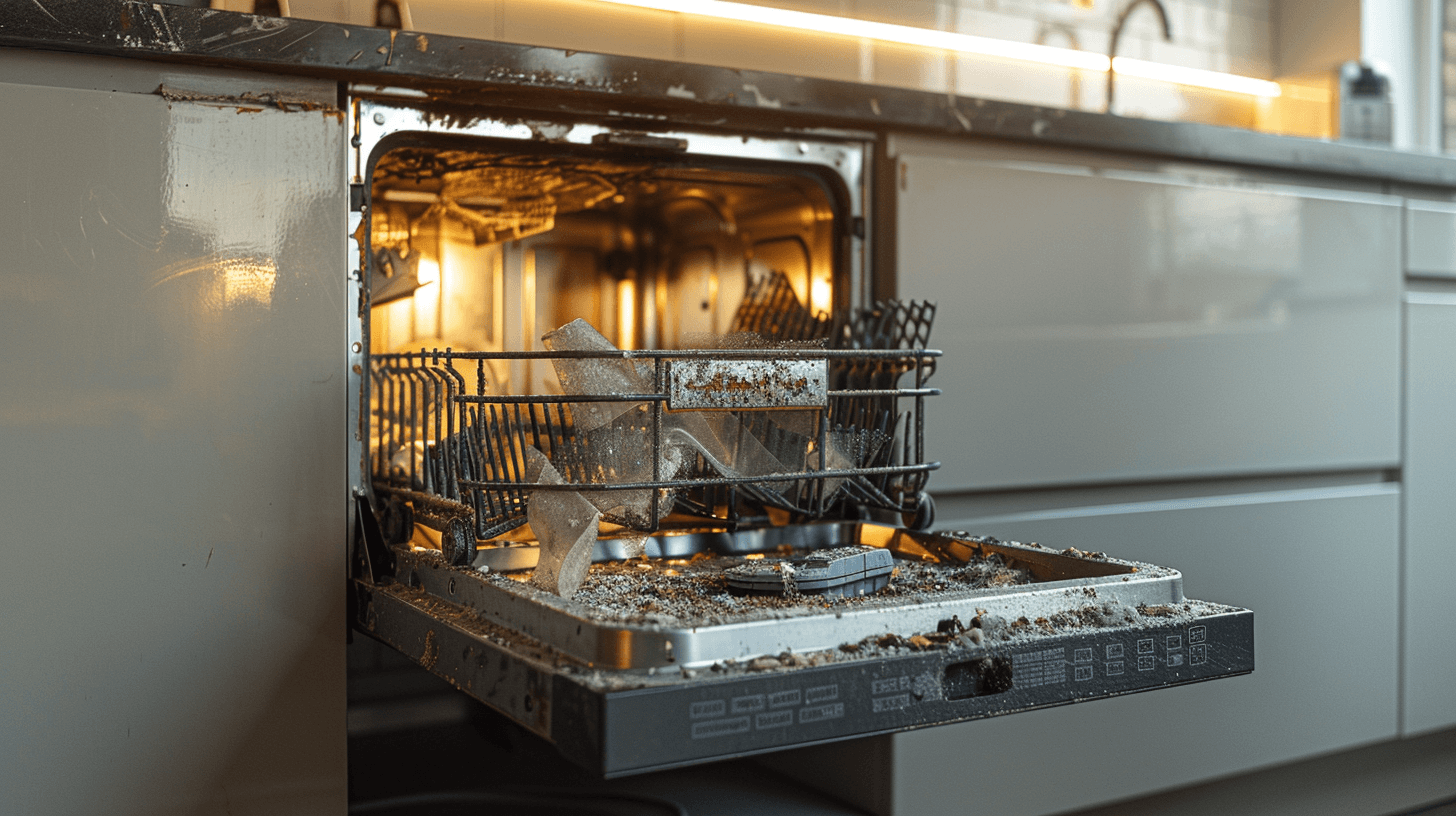 5 Signs Its Time to Replace Your Dishwasher
5 Signs Its Time to Replace Your Dishwasher

Recognising the End of Your Dishwasher’s Life Cycle
When contemplating the replacement of a dishwasher, understanding its average lifespan is paramount. Typically, dishwashers are designed to function optimally for 9 to 10 years. As this threshold approaches, one may notice a decline in efficiency, manifesting as longer wash cycles, increased energy consumption, or a failure to clean dishes thoroughly.
Efficiency Declines in Ageing Dishwashers
An ageing dishwasher may exhibit signs of wear that impact its performance. Users should be vigilant for symptoms such as:
- Inconsistent cleaning results: When dishes consistently emerge from cycles unclean, it could indicate a decline in the appliance’s functionality.
- Increased cycle times: A noticeable extension in wash duration often signals a loss in efficiency.
- Elevated noise levels: Unusual sounds may suggest motor or pump issues, necessitating an assessment for potential replacement.
Persistent Operational Issues
Operational issues that persist despite maintenance efforts are a clear indicator that it may be time to consider a new appliance. These issues include:
- Water retention: If the dishwasher retains water post-cycle, it could point to drainage problems.
- Cold dishes after a cycle: This may indicate a malfunctioning heating element.
Visible Signs of Wear: Cracks and Rust
Physical deterioration such as cracks and rust are not merely cosmetic issues; they can lead to more severe problems:
- Cracks: These can lead to water leaks and potential kitchen damage.
- Rust: The presence of rust, especially within the interior, suggests a breakdown of the dishwasher’s structural integrity.
By monitoring these signs, property owners can make informed decisions about whether to repair or replace their dishwasher, ensuring continued kitchen efficiency and hygiene.
Importance of Energy Star Ratings in Dishwasher Replacement
When considering a dishwasher replacement, the Energy Star rating is a pivotal factor. This rating signifies compliance with energy efficiency criteria set by the U.S. Environmental Protection Agency or the U.S. Department of Energy. Dishwashers bearing this mark typically use 10-20% less energy than non-rated models, which can translate to significant cost savings on utility bills for you as a property or business owner.
Impact of Heating Failures on Dishwasher Performance
Heating failures in a dishwasher compromise its ability to sanitise dishes effectively. The water must reach a certain temperature to activate detergents properly and eliminate bacteria. If your dishwasher is failing to heat water, this not only affects cleanliness but also may signal that the heating element or related components are in decline, necessitating a replacement.
Performance Problems Indicating Replacement Needs
Persistent problems such as dishes remaining dirty after a wash cycle are strong indicators that your dishwasher may require replacement. This issue often points to a failing component, such as spray arms or sensors, which are critical for effective cleaning. If such problems persist despite regular maintenance, it may be more economical to invest in a new appliance.
Financial Benefits of Upgrading to Efficient Models
Upgrading to a more energy-efficient dishwasher model can offer financial benefits beyond reduced energy consumption. Modern dishwashers often feature advanced technologies that optimise water usage and enhance operational efficiency, leading to lower utility costs. Additionally, some regions offer rebates or incentives for purchasing Energy Star-rated appliances, further offsetting the initial investment for you.
Identifying Signs of Critical Physical Damage in Dishwashers

Recognising Serious Cracks and Rust
Visible cracks, especially on the interior of the dishwasher, can lead to water leaks and potential damage to your kitchen. Rust formation, particularly around the door or at the bottom of the unit, often indicates a compromised barrier against water, which can result in leaks and may suggest that the structural integrity of the dishwasher is failing.
Door Issues and Associated Risks
Door problems, such as difficulty closing or a warped seal, can significantly increase the risk of flooding and may cause electrical faults. A secure door seal is essential to prevent water from escaping during operation. If your dishwasher door is not functioning correctly, it poses a substantial risk and often necessitates immediate attention or replacement.
Interior Rust as a Red Flag
The presence of interior rust is a clear sign that the dishwasher’s internal components may be deteriorating. This degradation can lead to leaks and affect the dishwasher’s ability to clean effectively. Interior rust should be taken as a serious indicator that the dishwasher may soon require replacement.
Leaks and Drainage Issues Signalling Need for Replacement
Persistent leaks and drainage problems often point to worn-out gaskets or failure of internal components such as the motor or pump. These issues can cause water to accumulate and lead to further damage if not addressed. When leaks and drainage issues become recurrent, it is usually more cost-effective to replace the dishwasher than to continue with repairs.
Assessing Operational Failures and Malfunctions in Dishwashers

Persistent noises from a dishwasher’s motor or pump can be alarming. These sounds may indicate mechanical issues that, if left unaddressed, could lead to costly breakdowns. It’s essential to recognise that such operational noises are not just inconveniences; they are often the harbingers of imminent failure.
Door Latching Problems and Flood Risk
A malfunctioning door latch on a dishwasher poses a significant flood risk. Should the door fail to seal properly during operation, water could escape, potentially causing extensive damage to your property. This issue is a clear sign that the dishwasher may need to be replaced to prevent such risks.
Drainage Issues as Indicators of Component Failure
Drainage problems in a dishwasher often point to deeper issues with the motor or control board. If water remains after the cycle, it suggests that these critical components may not be functioning correctly, which can impair the dishwasher’s performance and longevity.
The Significance of Starting and Draining Difficulties
When a dishwasher fails to start or drain correctly, it’s a strong indication that the appliance has reached the end of its functional life. These failures can be symptomatic of systemic issues that are not cost-effective to repair, suggesting that replacement is the more prudent option for ensuring continued kitchen efficiency.
Maximising Dishwasher Longevity Through Maintenance

Regular maintenance is the cornerstone of extending the lifespan of your dishwasher. By adhering to a consistent maintenance schedule, you can ensure that your dishwasher operates efficiently and effectively, reducing the likelihood of costly repairs or premature replacement.
Essential Maintenance Tasks for Dishwasher Upkeep
To prevent common dishwasher issues, several maintenance tasks are crucial:
- Regular Cleaning: Keep the interior free from food debris and grease buildup, which can clog spray arms and philtres.
- Philtre Checks: Inspect and clean the dishwasher philtre regularly to prevent blockages that impair water flow and cleaning efficiency.
- Sprayer Arm Maintenance: Ensure that the sprayer arms are moving freely and are not obstructed by small particles or mineral deposits.
The Role of Detergents and Water Softeners
Using the correct detergent and incorporating a water softener in areas with hard water can significantly contribute to your dishwasher’s efficiency. Hard water can lead to limescale buildup, which affects the heating element and moving parts, while the right detergent aids in preventing residue and ensuring a thorough clean.
Indicators of Neglected Professional Maintenance
Neglecting professional maintenance can lead to several telltale signs that a replacement may be imminent:
- Water Retention: After a cycle, water should not remain at the bottom of the dishwasher.
- Unclean Dishes: Dishes that are consistently dirty post-wash indicate a deeper issue.
- Unusual Noises: Grinding or buzzing sounds may suggest a failing motor or pump.
- Visible Damage: Cracks or rust on the interior or exterior signal that the integrity of the dishwasher is compromised.
Addressing these issues promptly through professional maintenance can prevent the need for an early replacement.
Evaluating Cost-Effectiveness: Repair vs. Replacement

When faced with a malfunctioning dishwasher, you must consider several factors to determine whether to repair or replace the unit. The decision hinges on cost-effectiveness, the appliance’s age, and its overall condition.
Warranty Considerations in the Decision-Making Process
Warranty status plays a crucial role in this decision. If your dishwasher is still under warranty, repairs may be covered, making them a more economical choice. However, once the warranty has expired, the cost of repairs, especially for major components like the motor or control board, can be substantial enough to warrant purchasing a new appliance.
The Role of Energy Efficiency in Dishwasher Replacement
Energy efficiency is a significant factor in the repair versus replacement debate. An older model that lacks energy efficiency not only contributes to higher utility bills but may also fall short of modern performance standards. Replacing an inefficient dishwasher with an Energy Star-rated model can lead to long-term savings and is an environmentally responsible choice.
Assessing Long-Term Value in Dishwasher Repair or Replacement
To assess the long-term value of repairing an ageing dishwasher, consider the following:
- Frequency of Repairs: Frequent breakdowns suggest that replacement may be more cost-effective over time.
- Performance: If the dishwasher is not performing to standards, even after repairs, replacement may be the better option.
- Innovation: Newer models offer advanced features that can improve convenience and efficiency, which may justify the investment in a replacement.
Ultimately, if the cost of repair approaches or exceeds half the price of a new dishwasher, replacement is often the more prudent financial decision for property and business owners.
The Necessity of Professional Expertise in Dishwasher Assessment

Seeking professional assistance for dishwasher issues is advisable when you encounter persistent operational failures, such as ineffective cleaning, unusual noises, or water leaks. Trained technicians possess the diagnostic tools and expertise to accurately assess the root cause of such problems, which may not be apparent to the untrained eye.
Ensuring Proper Installation and Leak Prevention
Professional installation is critical to the longevity and proper functioning of your dishwasher. Technicians ensure that all connections are secure, which is essential for preventing leaks. They are also adept at aligning and levelling the appliance to avoid any operational issues that could arise from improper installation.
Advantages of Hiring Trained Technicians
The benefits of hiring trained technicians include:
- Expert Diagnosis: They can quickly identify and resolve complex issues that might be beyond the scope of DIY repairs.
- Safety Assurance: Professionals are trained to handle electrical and plumbing tasks safely, mitigating the risk of accidents.
- Warranty Preservation: Many manufacturers require professional installation and repairs to maintain warranty validity.
“All Service 4U” and Dishwasher Service Evaluation
“All Service 4U” offers comprehensive services to evaluate whether your dishwasher should be repaired or replaced. Their technicians will consider factors such as age, efficiency, and the cost of potential repairs to provide you with a clear, cost-effective recommendation tailored to your specific needs.
Assessing Brand Reliability for Dishwasher Replacement

Brand reliability is a significant consideration when replacing a dishwasher. Reputable brands often equate to quality and durability, reducing the likelihood of frequent repairs or early replacement. It is advisable to research brand performance and customer satisfaction ratings to inform your decision.
Dishwasher Types for Different Properties
The choice between commercial and residential dishwashers depends on the usage requirements:
- Commercial Dishwashers: Designed for high-volume use with faster cycle times, suitable for business settings.
- Residential Dishwashers: Tailored for home use, focusing on efficiency and noise reduction.
Comparing Dishwasher Models for Business Owners
Business owners should compare dishwasher models based on:
- Capacity: Ensuring sufficient space for large loads.
- Cycle Speed: For quick turnaround in commercial environments.
- Energy Efficiency: To minimise operational costs.
- Durability: Models with robust construction to withstand frequent use.
Key Features for Long-Term Dishwasher Reliability
When selecting a new dishwasher, consider the following features for long-term reliability:
- Stainless Steel Interior: Resists stains and odours better than plastic.
- Soil Sensor: Adjusts the wash cycle based on how dirty the dishes are.
- Water Filtration System: Enhances cleaning performance and prevents food particles from re-depositing.
- Warranty: Longer warranties can provide peace of mind and indicate manufacturer confidence in the product.
Financial Planning for Dishwasher Replacement

When it’s time to replace your dishwasher, several cost considerations come into play. It’s not just the price of the new appliance; additional factors can affect the total investment.
Budgeting for New Dishwasher Installation
To budget effectively for a new dishwasher, you should:
- Assess the Base Cost: Start with the price of the dishwasher itself, which can vary widely based on features and brand reputation.
- Factor in Installation Fees: Professional installation ensures safety and warranty compliance but adds to the overall cost.
- Consider Disposal of the Old Unit: Some services charge for the removal and environmentally responsible disposal of the old dishwasher.
Anticipating Additional Replacement Expenses
Additional costs during the replacement process may include:
- Upgrades to Plumbing or Electrical Systems: Older homes might need updates to accommodate modern dishwashers.
- Parts for Installation: Items like hoses or fittings may not be included with the new appliance.
- Extended Warranties or Service Plans: These can provide long-term savings but require an upfront cost.
Cost-Effective Solutions from “All Service 4U”
“All Service 4U” provides cost-effective dishwasher replacement solutions by offering:
- Transparent Pricing: Clear breakdowns of costs, avoiding unexpected expenses.
- Expert Installation: Skilled technicians perform efficient installations that prevent future issues.
- Comprehensive Service: From selection to installation, ensuring you receive value for your investment.
Environmental Impacts of Dishwasher Replacement

When replacing a dishwasher, environmental considerations are as crucial as the functional and financial aspects. Modern dishwashers offer significant improvements in both water and energy savings, which contribute to a reduced environmental footprint.
Contributions of Modern Dishwashers to Sustainability
Modern dishwashers are designed with sustainability in mind:
- Water Conservation: New models are engineered to use less water per cycle, often significantly less than washing dishes by hand.
- Energy Efficiency: Enhanced energy-saving features reduce electricity consumption, lessening the environmental impact.
The Importance of Dishwasher Recyclability
Recycling your old dishwasher is a responsible step towards environmental stewardship. Many components, such as metal and plastic parts, can be recycled, preventing them from ending up in landfills.
Long-Term Benefits of Eco-Friendly Dishwasher Models
Upgrading to an eco-friendly dishwasher model offers several long-term advantages:
- Cost Savings: Reduced water and energy usage translate to lower utility bills.
- Environmental Benefits: Minimising resource consumption helps preserve ecosystems.
- Business Image: For business owners, using eco-friendly appliances can enhance the company’s image as environmentally conscious.
By considering these factors, you can make an informed decision that aligns with both your operational needs and environmental values.
Navigating Dishwasher Replacement Challenges

Replacing a dishwasher involves several challenges that property owners may encounter. Understanding these challenges is crucial for a smooth transition to a new appliance.
Addressing Plumbing and Electrical Compatibility
Compatibility with existing plumbing and electrical infrastructure is a primary concern:
- Plumbing Compatibility: Ensure the new dishwasher can connect to current water supply and drain lines.
- Electrical Requirements: Verify that electrical circuits meet the amperage and grounding requirements of the new unit.
Common Pitfalls in DIY Dishwasher Installation
DIY installations can lead to common pitfalls:
- Improper Installation: This can cause leaks, electrical issues, or inefficient operation.
- Voided Warranty: Many manufacturers require professional installation to maintain warranty coverage.
Professional Expertise from “All Service 4U”
“All Service 4U” mitigates these challenges with professional expertise:
- Skilled Technicians: They ensure that installation complies with all plumbing and electrical standards.
- Experience: Familiarity with a wide range of models means they can anticipate and address potential issues.
- Peace of Mind: Professional installation guarantees that the appliance operates safely and efficiently.
Streamlining Dishwasher Replacement with “All Service 4U”

Contacting “All Service 4U” can significantly streamline the dishwasher replacement process for you. Their team of experts provides a comprehensive service that includes assessment, removal of the old unit, and installation of the new one, ensuring a hassle-free experience.
Expert Dishwasher Assessment and Installation Services
“All Service 4U” offers a range of expert services to ensure your dishwasher operates at peak efficiency:
- Thorough Assessment: Technicians evaluate your current dishwasher’s condition to determine the most cost-effective solution.
- Professional Installation: Skilled professionals handle the installation of your new dishwasher, ensuring it meets all manufacturer specifications.
Compliance with Safety and Warranty Standards
Safety and warranty compliance are paramount at “All Service 4U”:
- Safety Protocols: All installations are performed following strict safety guidelines to protect your home or business.
- Warranty Adherence: Technicians ensure that all work is carried out in accordance with warranty requirements, safeguarding your investment.
Choosing “All Service 4U” for Reliable Dishwasher Solutions
Opting for “All Service 4U” for your dishwasher replacement needs guarantees:
- Reliability: A track record of dependable service ensures your dishwasher is replaced efficiently and effectively.
- Efficiency: With a focus on minimising downtime, “All Service 4U” works diligently to get your new dishwasher up and running promptly.

